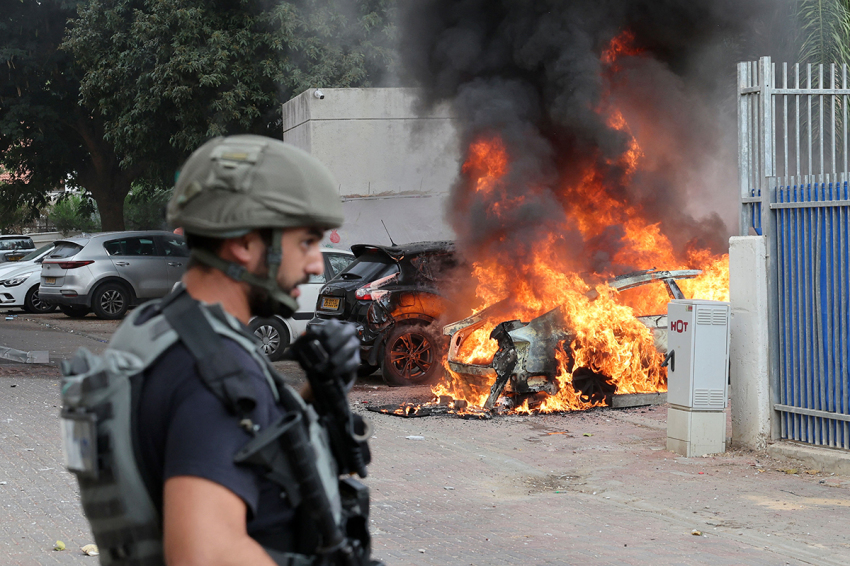World War III 'will not stop world evangelization,’ John Piper says

John Piper expressed optimism about the future of global Christian missions even if current conflicts in Eastern Europe and the Middle East lead to World War III.
On an episode of the “Ask Pastor John” podcast, a listener identified as “Malcolm” asked about wars raging across the globe, noting that he was “anxious about the state of the world.”
“All the world’s major armies seem to be awakening from a long slumber,” said Malcolm. “As we step into this new age of global tension, and as you see the news — the wars and the rumors of wars — what are your spiritual reflections about global conflicts?”
“How do you comfort yourself with biblical truth and with God’s sovereignty when it seems that the world is growing more hostile, and World War III is talked about more and more openly as a real possibility in the near future?”
Piper decided to narrow his answer to the issue of “what happens to the global missionary enterprise in times of wars and rumors of wars,” believing that such upheavals might lead some believers to “forsake or neglect or minimize the command of Jesus to make disciples among all the peoples of the world.”
Piper referenced Matthew 24:5-14, in which Jesus talks about “wars and rumors of wars,” as well as that, leading up to the End Times, “this gospel of the kingdom will be preached in the whole world as a testimony to all nations.”
“This connection makes plain ‘wars and rumors of wars’ will not stop God’s mission,” said Piper. “The mission will be completed in spite of, sometimes because of, nation rising against nation.”
“Whatever disruptions in missions are caused by wars and rumors of wars, the words of Jesus stand firm. Wars and rumors of wars will not stop world evangelization.”
Piper then turned to history, noting that many prominent missionary organizations and efforts that were founded in Europe and the United States during the Civil War.
He also pointed to other major conflicts and how revivals and evangelistic organizations were launched, even as the world found itself dealing with major military conflicts.
Piper’s examples included how the Interdenominational Foreign Mission Association was founded during World War I, Wycliffe Bible Translators was launched during World War II, and the World Evangelical Alliance and Campus Crusade for Christ were organized during the Korean War.
“This is just a tiny taste of the truth that wars and rumors of wars are not going to stop God’s promise to complete the task of world missions,” Piper added. “So, Malcolm, this is what the Lord has been using recently in my life to strengthen my heart and encourage me to press on in this great work.”
Piper’s comments come as the conflict in the Middle East appears to be expanding. Among other things, the United States recently launched strikes on the Iran-backed Houthi militia group in Yemen, while Lebanon-based Hezbollah has been launching missile attacks on Israel.
On Sunday, three U.S. service members were killed and 34 injured in a drone strike at a base in northeast Jordan, near the Syria border. This marked the 160th attack on U.S. troops since mid-October.
“The escalation — and the inherent dangers for the future—reflects a merger of crises in the Middle East,” reported The New Yorker earlier this month.
“Ten conflicts among diverse rivals or in different arenas over disparate flash points and divergent goals are now converging. For all the recent punditry warning about a widening war, the trajectory has long been obvious.”



























